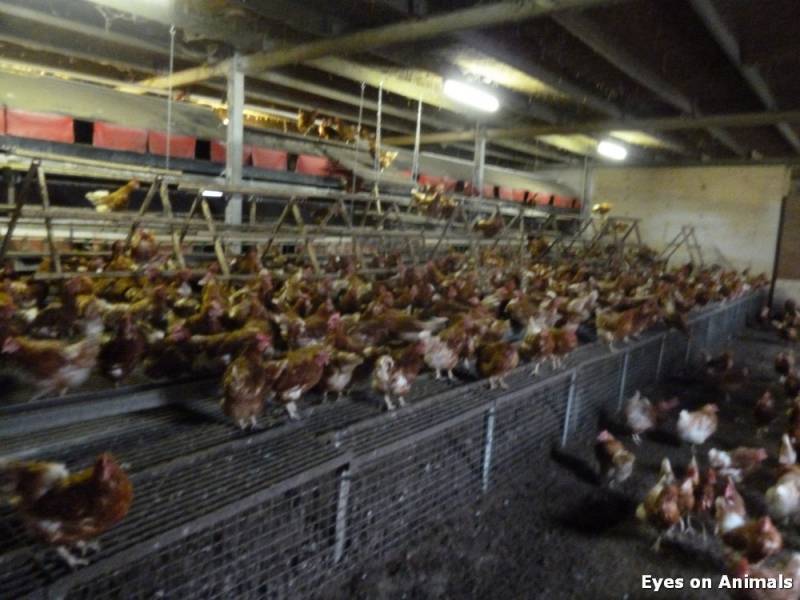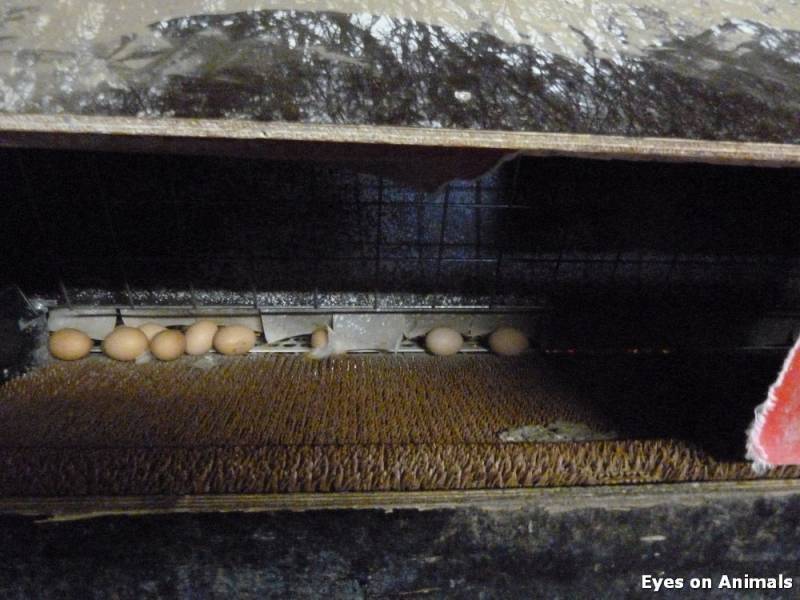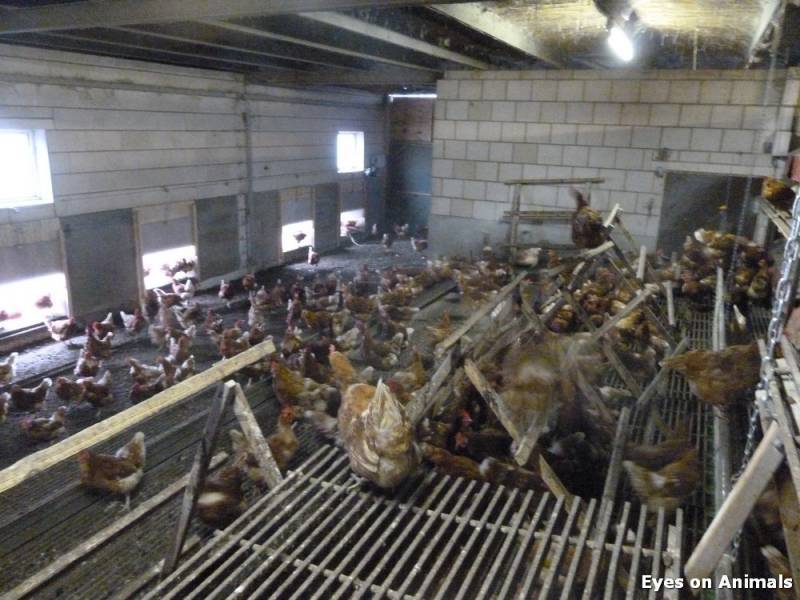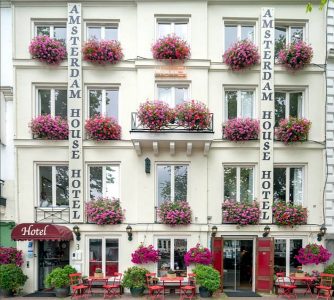 |
 |
|
Eyes on Animals inspectors visited an organic “egg” farm today. The purpose was to discuss with the farmer what welfare concerns he had for the way chickens are caught, loaded and transported to slaughter. At the moment, hens and broilers raised on organic farms are still caught and transported in the same manner as hens and broilers raised in the conventional “factory-farming” systems. There does not yet exist a specific catching company or transport company that gives extra care to the welfare of the birds. This is most unfortunate, as our inspections of chicken trucks have shown that many birds suffer horribly during loading and transport. The farmer told us he would prefer using his own friends and contacts to load his 12,000 hens, but he does not know that many people able to do the job. Loading only part of his flock at a time would be possible (4,000 birds), but then only 1/3 of the truck would be full, making it economically impossible. As a result he has to order a chicken catching company to come in. Often these catchers are very rough with the birds, some even arrive half-drunk. They pick up 4 birds at a time, 2 per hand, and carry them upside down to the crates where they then often brutally shove them into the crates. He also does not know how many hours his hens end up confined in the crates; he does not receive feedback from the slaughterhouse at what time they were finally unloaded and slaughtered. It was very disappointing to hear that these catching companies exist, despite being so rough. How has the PVE tolerated this for so long? |
|
 |
 |
Footer
Donate with Paypal

